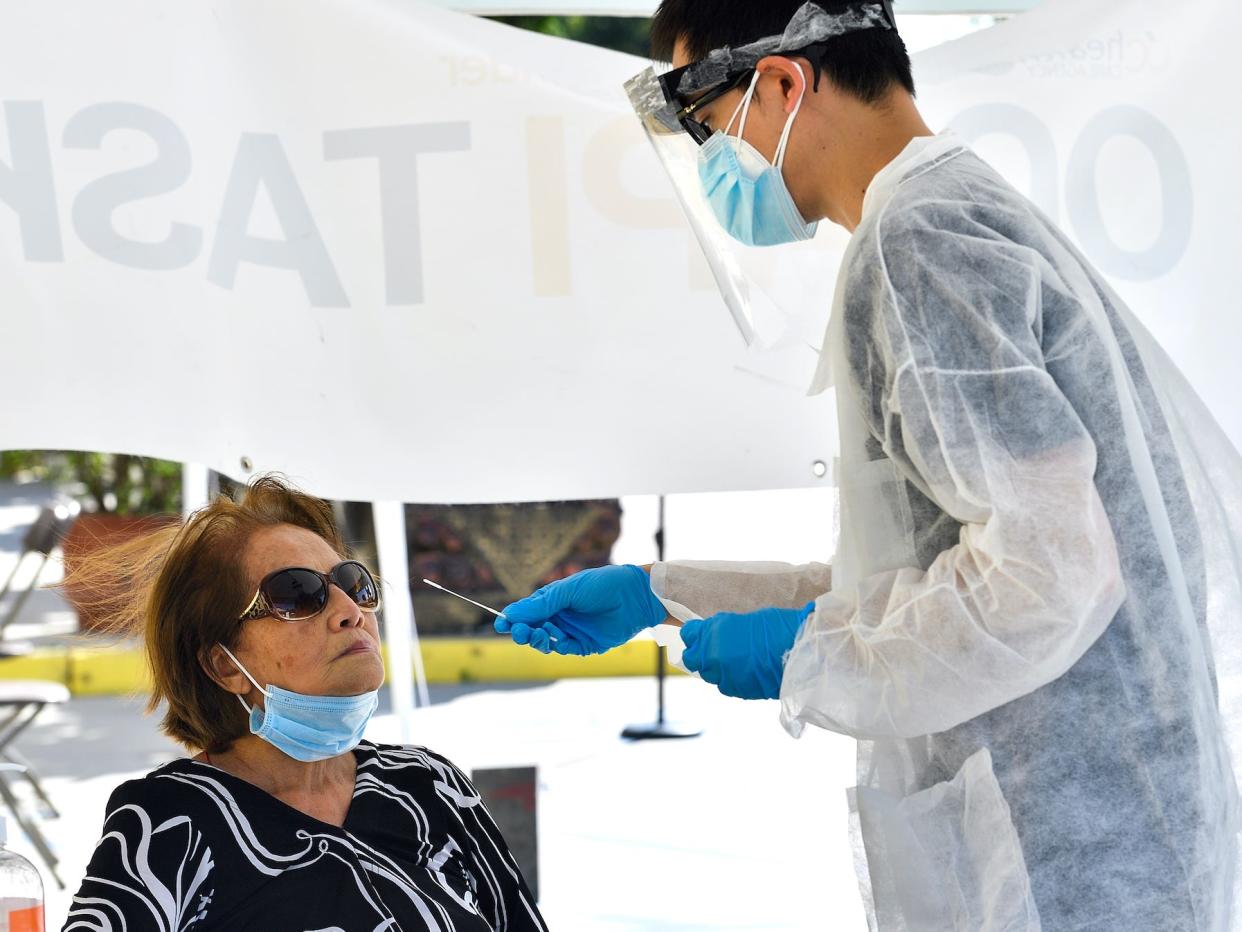Testing for COVID-19 has declined. Experts worry it's too soon for the US to let its guard down.

Testing sites across the country are closing due to limited demand for COVID-19 tests.
The trend comes as cases, hospitalizations, and deaths have been in decline.
Experts are concerned that without testing, cases can rise, especially as variants spread.
Limited demand for coronavirus tests is prompting sites across the country to shut down, which has experts worried about another rise in cases.
Earlier this week, Georgia permanently closed testing sites in 10 of its northwest counties because of a decline in demand and limited resources, WRCBTV reported.
Some testing sites in South Carolina rolled back their hours of operation as demand also declined in the state, WIS10 reported.
On Friday, the Associated Press reported that in Los Angeles County, the largest in the country, more than 180 sites were only working at a third of their capacity.
On January 15, the US was averaging over 2 million tests per day, a peak that has since dropped by more than 28%, the AP found.
The decline in testing comes as coronavirus cases in the US dropped by 70% over the past six weeks. Hospitalizations and deaths have also been on the decline.
Officials told the AP that the decline in cases, as well as the winter weather, pandemic fatigue, and the growing vaccination effort, are contributing to the lack of interest in testing.
"When you combine all those together you see this decrease," Dr. Richard Pescatore of the health department in Delaware told the AP. "People just aren't going to go out to testing sites." The state has seen a more than 40% drop in testing.
Dr. Peter Chin-Hong, an infectious disease specialist at the University of California, San Francisco, told Insider that one factor to this decline in testing is "people are perhaps feeling false assurance from the numbers going down overall, although I must say that there's still a lot of COVID around."
Chin-Hong said that in California, as well as throughout the country, resources - specifically people in public health - have had to pivot to help with the vaccine effort instead of testing.
He explained that testing goes up after contact tracers call people to tell them have been exposed.
"If there's less contact tracing then there's potentially less testing," he said, adding that it's likely that contact-tracing has gone down as a result of more resources being pulled to help get Americans vaccinated.
Experts say testing is critical to preventing another surge, especially as the risk of new and more transmissible variants remains on the horizon. A strain discovered in the United Kingdom is expected to become the most dominant variant in many states by next month.
"We need to use testing to continue the downward trend," Dr. Jonathan Quick of the Rockefeller Foundation, told the AP. "We need to have it there to catch surges from the variants."
On Friday, Dr. Rochelle Walensky, director of the Centers for Disease Control and Prevention, said that in recent days there was a rise in confirmed COVID-19 cases.
Meanwhile, health officials are worried that the progress is "stalling" and say that it's too soon for the US to let its guard down.
"Over the last few weeks, cases and hospital admissions in the United States had been coming down since early January and deaths had been declining in the past week," Walensky said. "But the latest data suggests that these declines may be stalling, potentially leveling off at, still, a very high number."
A study by researchers at the Harvard TH Chan School of Public Health and the University of Colorado Boulder released in November found that more testing, even with less reliable rapid tests, could help quell the pandemic.
Researchers found that if half the population was tested weekly and those who tested positive were isolated, it could significantly reduce the spread of the virus.
Kelsey Vlamis contributed to this report.
Have a news tip? Contact this reporter at salarshani@insider.com
Read the original article on Business Insider

